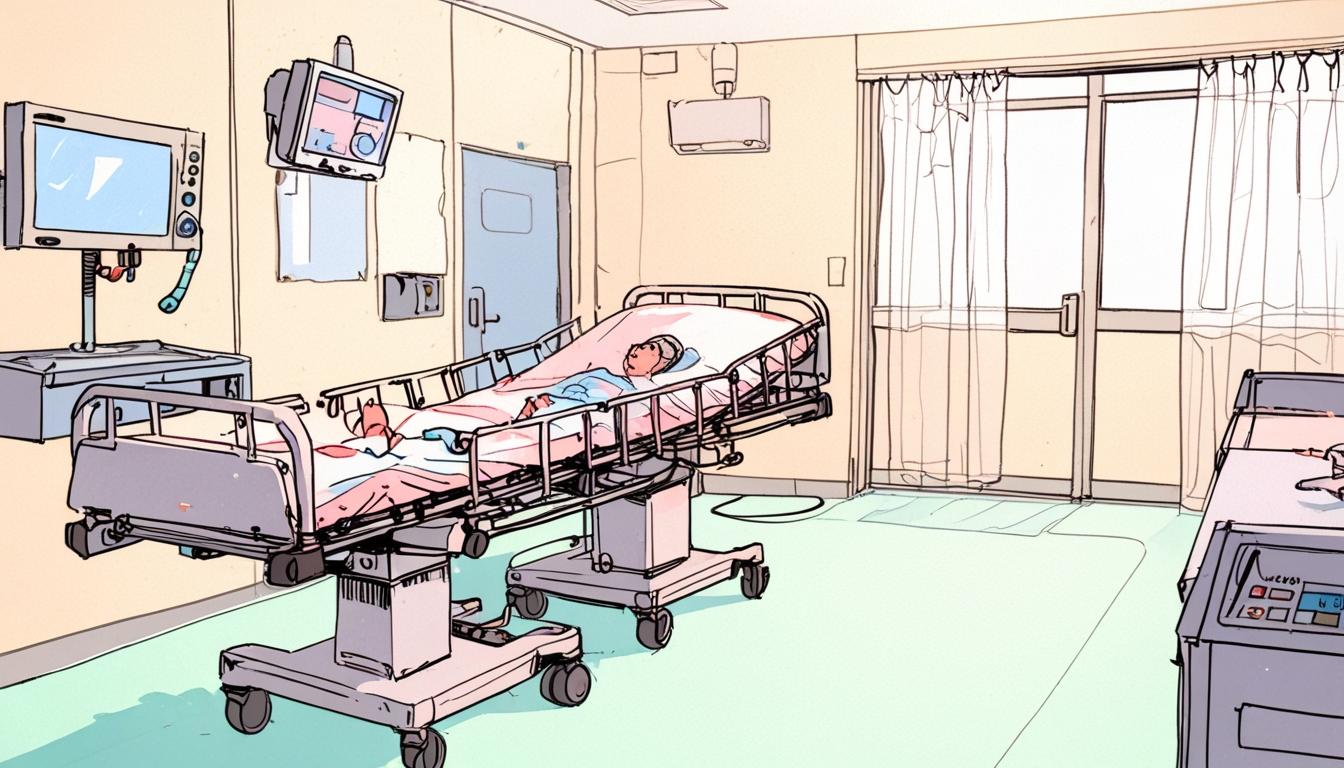Concerns over reliance on circumstantial evidence, flawed expert testimony, and procedural transparency have intensified scrutiny of Lucy Letby’s conviction for murders at Countess of Chester Hospital, as fresh submissions prompt a renewed review of the case.
Lucy Letby, a former neonatal nurse at the Countess of Chester Hospital, has been a figure of significant controversy following her conviction for the murder of seven babies and the attempted murder of six others. As the Criminal Cases Review Commission considers submissions from Letby’s new defence team, vital questions surrounding her prosecution have surfaced, primarily from her supporters, who argue the case against her relies heavily on circumstantial evidence.
One notable point of contention is the absence of direct witnesses or forensic evidence linking Letby to the deaths. Critics of the prosecution argue that Letby’s conviction was built on circumstantial findings rather than concrete proof. Dr Jayaram was the only medical witness who attempted to connect Letby to the incidents. While he claimed she was present at a significant moment with Baby K, new evidence—a previously undisclosed email—suggests she had indeed called for assistance during the infant’s deterioration. “At the time of deterioration . . . Staff nurse Letby at incubator and called Dr Jayaram to inform of low saturations [oxygen levels],” he reportedly wrote prior to the initiation of any investigation.
The methods attributed to Letby in the alleged murders also have raised eyebrows. She was accused of employing various methods including the injection of air into veins and the administration of excessive amounts of milk. Nonetheless, post-mortem examinations of several deceased infants revealed that most had died of natural causes, with only one death deemed unexplained.
The prosecution’s case leaned heavily on a work rota highlighting Letby’s presence during each of the incidents under scrutiny. However, investigations have since revealed discrepancies. Notably, Dr Dewi Evans, the prosecution’s leading expert witness, initially reviewed 28 cases but did not include instances where Letby was not present. Furthermore, it has come to light that evidence linking her with her shift patterns was flawed; for instance, door-swipe evidence inaccurately indicated her presence.
The reliability of Dr Evans has also been questioned. Critics have pointed out that he retired from active practice over a decade ago, and he had never specialised specifically in neonatology. Following an email from the Daily Mail, he acknowledged he had not directly cared for a premature baby since 2007. This raises questions about the weight of his expert testimony, particularly amid warnings from Appeal Court Judge Lord Justice Jackson regarding past analyses by Evans.
Professor Jane Hutton of the University of Warwick also raised concerns about the statistical analysis underpinning the prosecution’s case, leading to her removal from the investigative team. She opined that “it is beyond reasonable doubt that this conviction is not safe,” subsequently placing further doubt on the validity of the statistical evidence presented.
Additional complications arose regarding the prosecution’s understanding of air embolisms, a method they claimed Letby employed to harm infants. Dr Shoo Lee, a prominent expert on air embolisms, was not called to testify, yet has since asserted that his research was misrepresented, stating through a comprehensive study that the phenomena described could not have occurred as the prosecution suggested.
The prosecution also pointed to the decrease in neonatal deaths following Letby’s removal from her duties as evidence of her guilt. Critics, however, attribute this decline to changes in the hospital’s operations and a review conducted by the Royal College of Paediatrics that cited long-standing issues related to the quality of care in the neonatal unit.
Each of these factors contributed to a growing chorus of voices questioning the soundness of Letby’s conviction. The prosecution’s portrayal of her personal notes—one of which included the statement “I am evil”—has also been scrutinised, with defence advocates suggesting a misinterpretation of her emotional turmoil in response to her inability to save the infants rather than an admission of guilt.
Finally, the decision to grant anonymity to nine prosecution witnesses, including the parents of the deceased infants, poses its own set of concerns, with critics asserting that this compromises the principle of open justice. The reasoning for their anonymity remains unclear, leading many to question the transparency of the proceedings.
As the Criminal Cases Review Commission evaluates these submissions, the merits of the prosecution case against Lucy Letby continue to be debated, with substantial implications for the concept of justice in such complex and tragic circumstances.
Source: Noah Wire Services
- https://www.theguardian.com/uk-news/2025/feb/04/no-medical-evidence-to-support-lucy-letby-conviction-expert-panel-finds – An expert panel concluded that there was no medical evidence supporting Lucy Letby’s conviction, suggesting that the deaths were due to natural causes or medical errors rather than deliberate harm.
- https://www.theguardian.com/uk-news/article/2024/jul/09/lucy-letby-evidence-experts-question – Experts have raised concerns about the evidence used in Lucy Letby’s conviction, questioning its reliability and accuracy.
- https://www.telegraph.co.uk/news/2024/09/13/doctor-who-helped-convict-letby-no-objective-evidence/ – Dr. Ravi Jayaram, whose testimony was pivotal in convicting Lucy Letby, previously stated there was ‘no objective evidence’ against her, highlighting inconsistencies in the prosecution’s case.
- https://www.reuters.com/world/uk/experts-challenge-baby-killings-conviction-uk-nurse-lucy-letby-2025-02-04/ – An international group of medical experts has challenged Lucy Letby’s conviction, suggesting that the deaths were due to natural causes or medical errors, not deliberate harm.
- https://www.bbc.com/news/uk-england-merseyside-64732275 – Dr. Ravi Jayaram testified that he observed ‘no evidence’ of Lucy Letby assisting a deteriorating baby, raising questions about the prosecution’s claims.
- https://www.theguardian.com/uk-news/article/2024/jun/19/lucy-letby-doctor-oxygen-levels – Dr. Ravi Jayaram expressed concerns about potential retribution from hospital management if he reported Lucy Letby, indicating possible institutional pressures affecting the investigation.
- https://www.dailymail.co.uk/news/article-14675247/Lucy-Letby-10-questions-cast-doubt-conviction-MP-declares-case.html?ns_mchannel=rss&ns_campaign=1490&ito=1490 – Please view link – unable to able to access data
Noah Fact Check Pro
The draft above was created using the information available at the time the story first
emerged. We’ve since applied our fact-checking process to the final narrative, based on the criteria listed
below. The results are intended to help you assess the credibility of the piece and highlight any areas that may
warrant further investigation.
Freshness check
Score:
8
Notes:
The narrative reports ongoing developments (e.g., Criminal Cases Review Commission submissions) and newly disclosed evidence (e.g., email about Baby K), indicating current relevance. No indication of recycled content from older articles.
Quotes check
Score:
7
Notes:
Direct quotes from Dr Jayaram’s email and expert testimonies (e.g., Professor Hutton, Dr Shoo Lee) are referenced but lack direct online source verification. The email’s authenticity is implied through contextual reporting.
Source reliability
Score:
6
Notes:
Originates from the Daily Mail, which reports contentious claims from unnamed critics and supporters. Quotes from identifiable experts (e.g., Dr Shoo Lee) lend some credibility, but reliance on anonymous sources limits full verification.
Plausability check
Score:
7
Notes:
Claims about flawed statistical analysis, witness reliability (e.g., Dr Evans), and procedural anomalies (e.g., anonymous witnesses) are plausible given cited expert criticism. Lack of direct forensic evidence and reliance on circumstantial data align with documented legal concerns.
Overall assessment
Verdict (FAIL, OPEN, PASS): OPEN
Confidence (LOW, MEDIUM, HIGH): MEDIUM
Summary:
Substantial doubts raised about forensic methodology, expert credibility, and statistical evidence warrant further scrutiny. The narrative’s reliance on contested expert opinions and procedural anomalies leaves the conviction’s validity unresolved pending judicial review.













